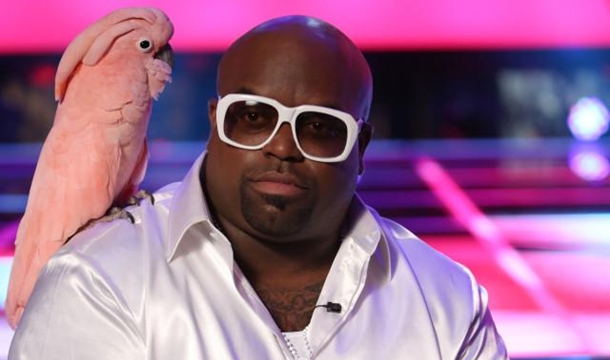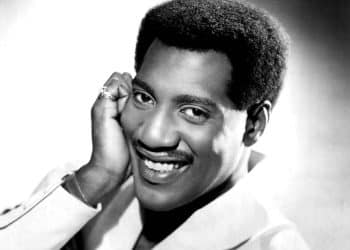Cee Lo Green says his comments, implying that being passed out grants consent, have been taken "so far out of context".
"Let me 1st praise God for exoneration fairness & freedom! Secondly I sincerely apologize for my comments being taken so far out of context. I only intended on a healthy exchange to help heal those who love me from the pain I had already caused from this. Please forgive me as it..…was your support that got me thru this to begin with. I’d never condone the harm of any women. Thank you," Green shared in his version of a public apology via social media Tuesday.
Green's apology follows TBS' decision to cancel his reality series, "The Good Life," and a petition in the wake of thoughts he shared regarding a case where he was accused of giving a woman ecstasy. His attorney claims a sexual encounter that followed, in his hotel room, was consensual. Green, facing criticism via Twitter, attempted to clarify just what consensual meant to him.
"If someone is passed out they're not even WITH you consciously! So WITH implies consent," Green wrote in his initial tweets. "When someone brakes on a home there is broken glass. Where is your plausible proof anyone was raped."
He went on to say "People who have really been raped REMEMBER!!!"
Adding more insult to injury, Green took to Twitter on Wednesday to further (fuel the fire) with another apology.
"I truly and deeply apologize for the comments attributed to me on Twitter. Those comments were idiotic, untrue and not what I believe," said Green.
As previously reported, Green parted ways with "The Voice" last year, following several seasons as a coach. He has plead no contest to charges of furnishing a woman with ecstasy in 2012 and has been sentenced to three years probation, 360 hours of community service, drug or alcohol abuse classes and has been required to register as a controlled substance offender. He is due in court March 2 for a progress hearing.
c: Twitter/CBS Los Angeles.
If you’ve been following the latest news, you might have come across the controversy surrounding Cee Lo Green’s recent tweets. The Grammy-winning singer-songwriter found himself in hot water after posting a series of tweets that many perceived as condoning and trivializing rape.
However, Cee Lo Green has now issued an apology, claiming that his words were taken out of context.
In today’s digital age, social media has become a powerful tool for shaping public opinion. It allows celebrities like Cee Lo Green to connect directly with their fans and share their thoughts instantly. However, it also means that every word they say is under scrutiny by millions of eyes.
In this case, Green’s tweets sparked outrage and led to widespread condemnation. But with his recent apology, he hopes to clarify his intentions and move past this controversy.
Stay tuned to find out how this situation unfolds and whether or not the public will accept his explanation.
The Controversy Surrounding Cee Lo Green’s Tweets
The controversy surrounding Cee Lo Green’s tweets has ignited a firestorm of outrage and debate, leaving the internet ablaze with passionate arguments.
It all started when the singer took to Twitter to express his thoughts on what constitutes rape. In a series of now-deleted tweets, he wrote, “People who have really been raped REMEMBER!!! If someone is passed out they’re not even WITH you consciously! So WITH implies consent.”
These remarks immediately drew backlash from users who found them offensive and dismissive of the seriousness of sexual assault. Critics argue that Cee Lo Green’s tweets are an example of victim-blaming and perpetuate harmful stereotypes about consent. By suggesting that being unconscious implies consent, he undermines the experiences of survivors and minimizes the trauma they endure.
Many people were outraged by his insensitivity towards such a serious issue, especially considering his platform as a public figure. The backlash was swift and widespread, with many calling for consequences for his words.
However, there were also some defenders who claimed that Cee Lo’s tweets were taken out of context or misunderstood. They argued that he was simply expressing an opinion about a specific situation rather than condoning or promoting rape. Nonetheless, it is important to note that regardless of intent, his comments had a profound impact on those who have experienced sexual assault or know someone who has.
The controversy surrounding Cee Lo Green’s tweets serves as a reminder of the power and responsibility celebrities hold in their influence over public discourse.
Overall, the controversy surrounding Cee Lo Green’s tweets highlights the ongoing conversation around consent and victim-blaming in society. While some may argue that his remarks were taken out of context or misunderstood, they cannot deny the significant negative impact they had on survivors and their allies.
This incident serves as another example of how social media can amplify voices but also expose individuals’ problematic beliefs and attitudes. It underscores the need for continued education and dialogue regarding these sensitive topics to create a safer and more empathetic society for all.
The Power of Social Media in Shaping Public Opinion
Social media wields immense influence in shaping public opinion, provoking strong emotions within its users. With just a few clicks, individuals can share their thoughts and opinions with the world, instantly reaching a vast audience. The power of social media lies in its ability to amplify messages and spark discussions, often leading to heated debates and controversies.
In the case of Cee Lo Green’s tweets, social media played a pivotal role in spreading awareness about his controversial statements. Within minutes of his posts going live, they were shared and retweeted thousands of times, causing an uproar among users. People expressed their outrage and disappointment through comments and replies, fueling the controversy further. As more individuals joined the conversation, public opinion shifted against Cee Lo Green. This showcases how social media can quickly escalate a situation and shape public perception.
Furthermore, social media platforms provide space for marginalized voices to be heard. In the case of Cee Lo Green’s tweets, survivors of sexual assault used social media as a platform to express their anger and frustration towards his offensive remarks. Their powerful stories resonated with others who may have initially dismissed or overlooked the issue. Through hashtags like #SurvivorStories or #NotOkay, survivors found solace in a community that understood their experiences and united against Cee Lo Green’s insensitive comments.
Overall, it’s evident that social media has become an influential factor in shaping public opinion on various issues. It has given individuals a platform to voice their concerns while holding celebrities accountable for their actions or words. By amplifying messages and providing space for marginalized voices to be heard, social media has undeniably changed the dynamics of public discourse today.
Conclusion
In conclusion, it’s clear that Cee Lo Green’s tweets have caused a significant controversy and ignited intense debate. The power of social media can’t be underestimated, as it has the ability to shape public opinion and influence the perception of individuals.
Green’s apology, although acknowledging his wrongdoing, also emphasizes the importance of understanding the context in which his tweets were made.
While some may argue that Green’s apology was insincere or insufficient, it’s crucial to remember that we should always strive for empathy and understanding when addressing sensitive issues such as rape. Instead of jumping to conclusions or making snap judgments based solely on a few tweets, taking into account the larger context can help us gain a more comprehensive understanding of the situation at hand.
Ultimately, this incident serves as a reminder of the responsibility we all have when using social media platforms. It highlights how our words and actions online can have real-world consequences and underscores the need for careful consideration before expressing ourselves publicly.
By learning from this controversy, we can aim to foster more meaningful conversations and promote respect and understanding in our digital interactions.







